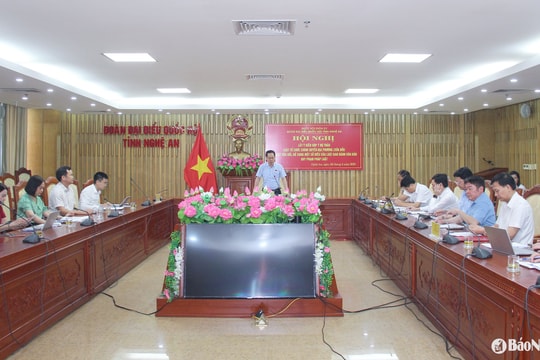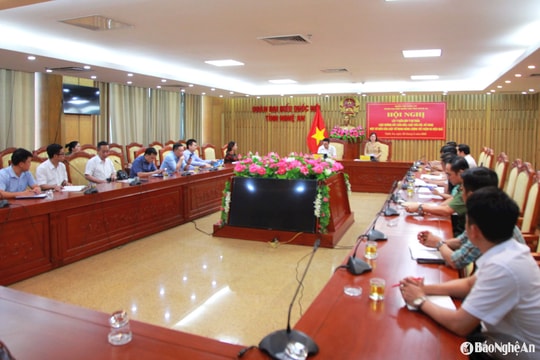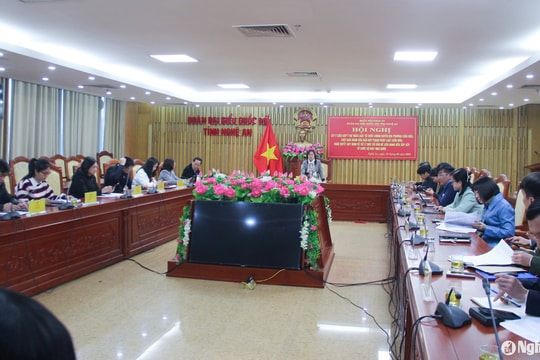The provincial National Assembly delegation collected comments on the Draft Laws submitted to the 6th session of the 15th National Assembly.
(Baonghean.vn) - On the morning of September 12, the National Assembly Delegation of the province held a conference to collect comments on the Draft Law on Management and Protection of National Defense Works and Military Zones; Law on Forces Participating in Protecting Security and Order at the Grassroots Level; and Law on Citizen Identification (amended).
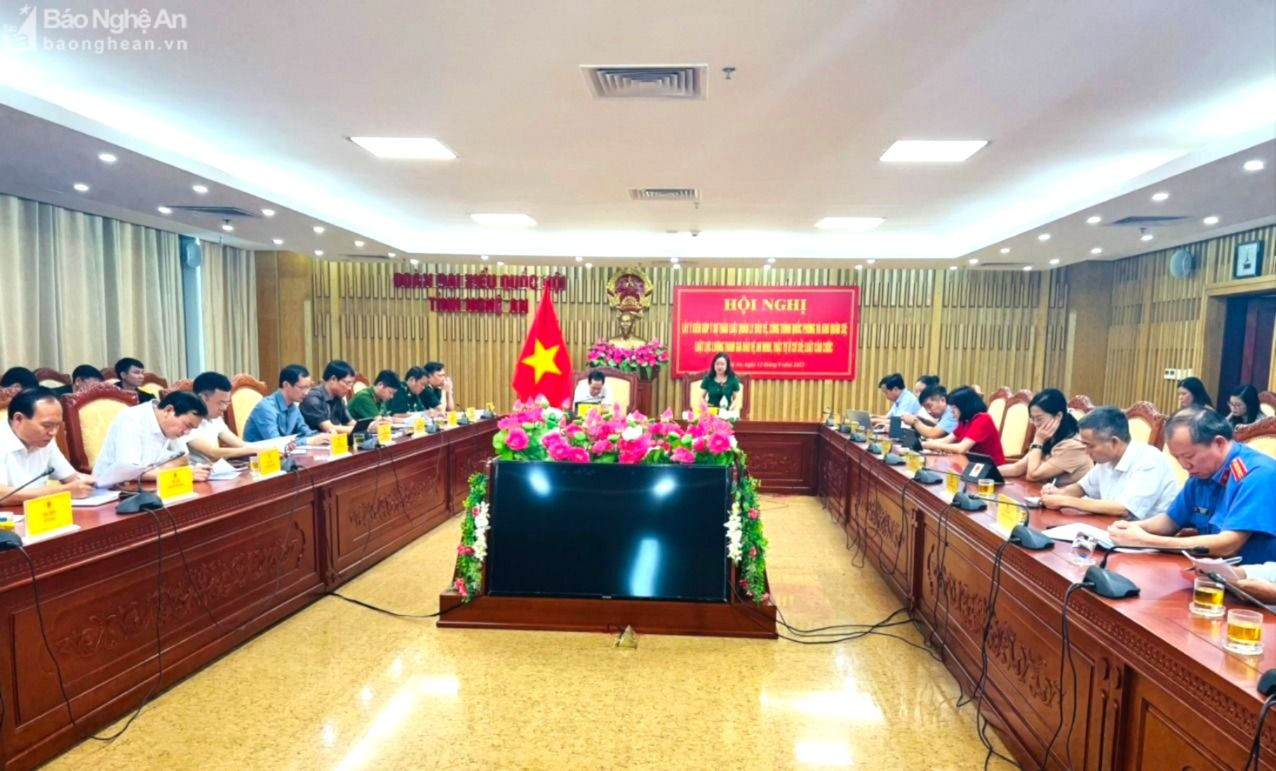
Attending the conference were comrade Nguyen Nhu Khoi - Member of the Provincial Party Committee, Vice Chairman of the Provincial People's Council; representatives of the Provincial Fatherland Front Committee, the Provincial People's Committee Office and units: Department of Justice, Provincial Police, Provincial People's Procuracy; Provincial Military Command; Provincial Border Guard Command; legal experts, collaborators, and a number of related localities..
At the conference, delegates all recognized that the promulgation of these Laws was extremely necessary; at the same time, they believed that the reports explaining, accepting, and revising the draft laws of the National Assembly Standing Committee were relatively complete, clearly explaining the difficulties and inadequacies in the draft laws.
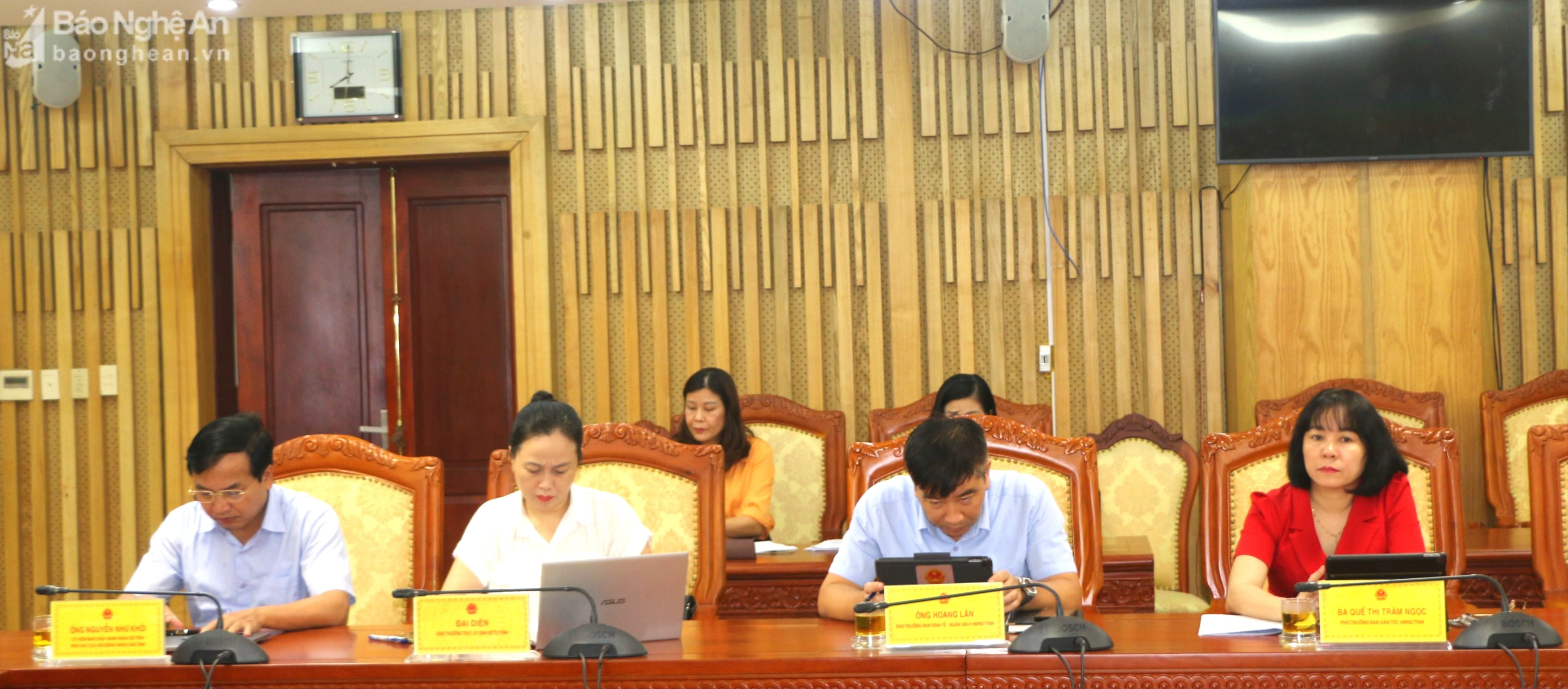
Contributing opinions to the Draft Law on Forces Participating in Security and Order Protection at the Grassroots Level and the Law on Citizen Identification (amended). The representative of the Provincial Police affirmed that these two Law projects are of important significance for the work of ensuring security and order at the grassroots level. Currently, at the grassroots level, there are 3 main forces including: Part-time Commune Police, Civil Guard, and Civil Defense. Practice shows that these are the core forces to ensure security at the grassroots level, so it is necessary to have a draft law with specific regulations for these forces.
Regarding the Law on Citizen Identification (amended), the representative of the Public Security sector said that the draft Law is consistent with the trend of digital transformation as well as the requirements of the current practice and integration process of the country. The new draft Law on Citizen Identification has a wider scope of regulation, applicable to people of Vietnamese origin who are stateless and living in Vietnam. The addition of the content of granting Identity Cards and Identification Numbers aims to expand and integrate more information of citizens and people of Vietnamese origin living in the locality; facilitate the work of planning social development policies; ensure security, order and social safety.
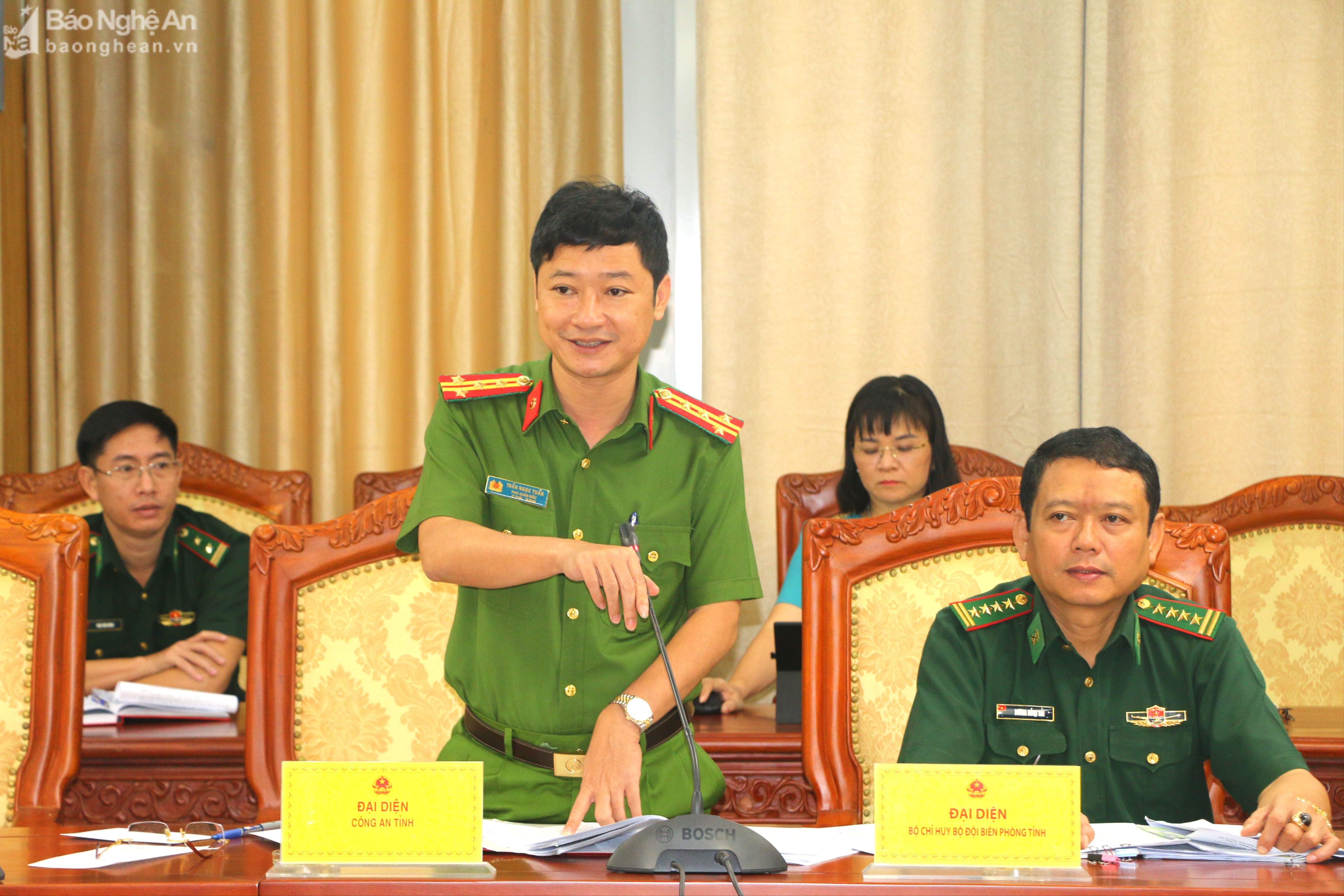
At the conference, some delegates expressed concerns about the name “ID card” or “citizen identification card” and suggested that the name “citizen identification card” should be unified to distinguish whether the cardholder is a Vietnamese citizen or not. According to some delegates, issues related to card exchange and the cost of ID card exchange should also have clear regulations and more specific instructions.
The delegate from Hung Tien commune, Nam Dan district stated that Point i, Clause 1, Article 18 requires information to be shown.“Place of Birth Certificate Registration”on the citizen identification card is unreasonable, because in reality and according to the provisions of current law, a person who loses his/her Birth Certificate can re-register elsewhere and in this case, it may lead to a change in the information on the Birth Certificate. The delegate also proposed to add specific regulations on the responsibilities and conditions for organizations and individuals when connecting, sharing, exploiting and using the national population database; the identity database, information in the electronic identification and authentication system, to avoid the possibility of personal information being exploited and used illegally.
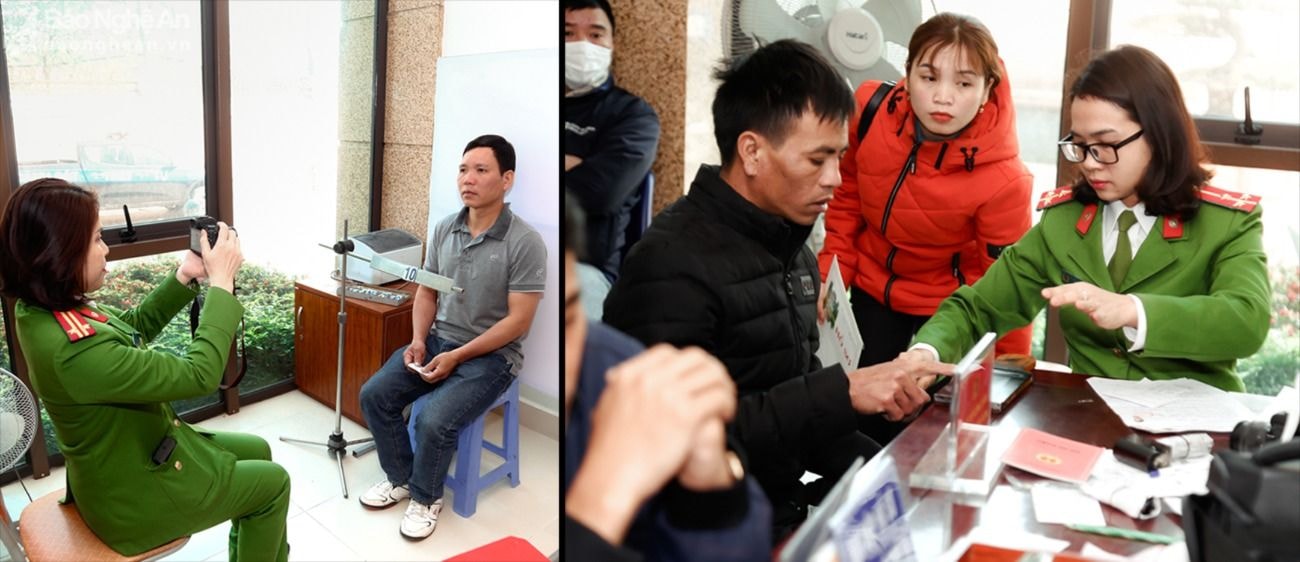
Regarding the Draft Law on Forces Participating in Protecting Security and Order at the Grassroots Level, some delegates said that the draft Law stipulates that this is a force established by the grassroots government, but is subject to the management and operation of both the government and the commune police, which is overlapping, and suggested that there be additional adjustments for consistency. In addition, the current general regulations on budget sources and mechanisms and policies for grassroots security forces will cause difficulties and obstacles in the implementation process, especially for localities with difficult socio-economic conditions. Therefore, it is necessary to specify this content more clearly based on the characteristics and specificities of each region.
The delegates also said that the task of protecting grassroots security is the task of all people, so it is necessary to establish a security and order fund at the grassroots level to mobilize the strength of all people in protecting national security, reducing the burden on the budget. The representative of the Vinh City People's Committee proposed to increase the allowance to ensure the rights of the civilian protection teams, in order to better perform the task of protecting grassroots security.
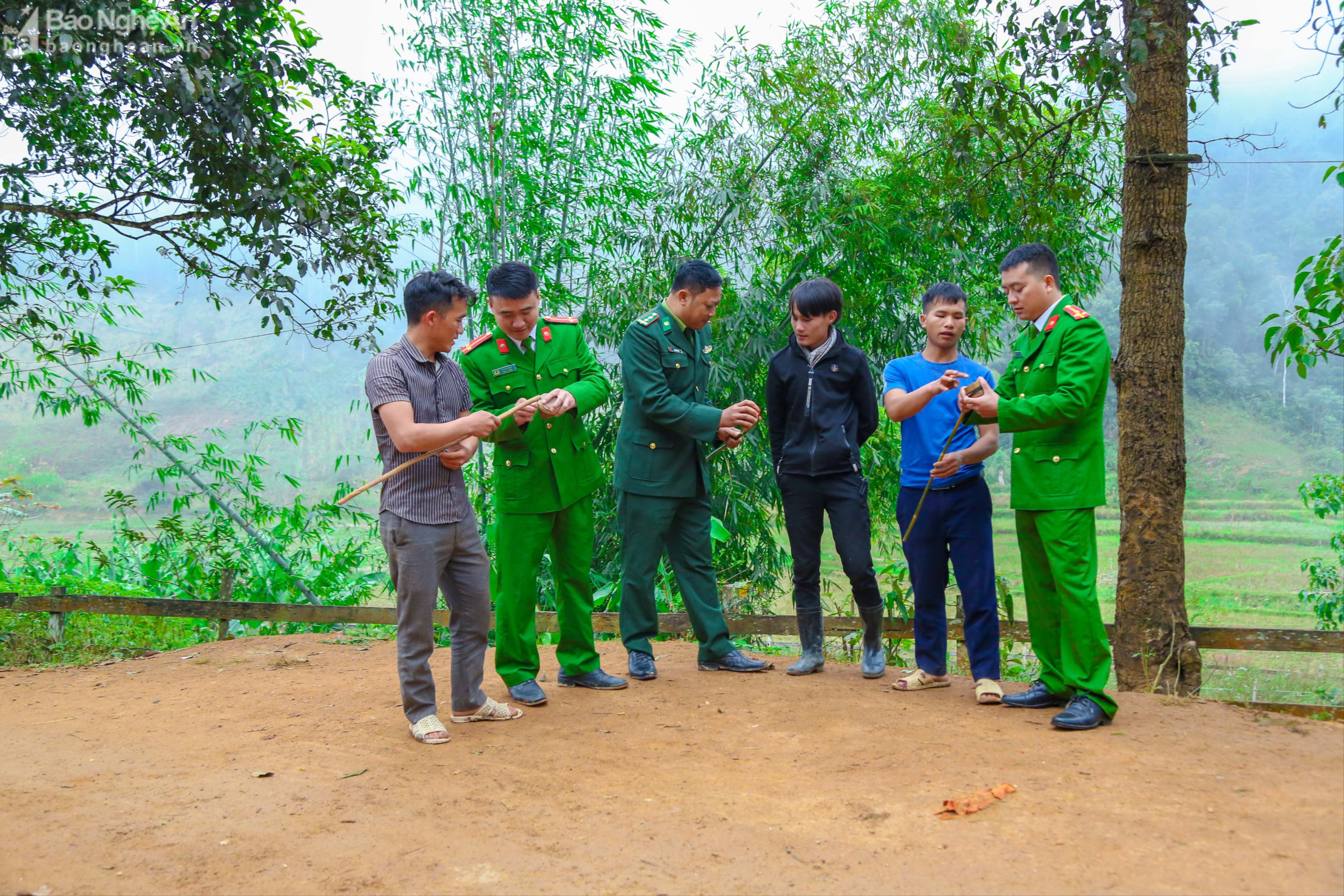
Contributing opinions to the Draft Law on Management and Protection of National Defense Works and Military Zones, the representative of the Provincial Military Command proposed that the draft Law should stipulate more specifically and clearly the determination of the scope and boundaries of protection of national defense works and military zones, because in reality, there are still phenomena of illegal encroachment and cultivation in the assigned management and protection areas. The representative of the Provincial Military Command proposed to clarify some concepts such as "dual-use works", "national defense works included in the planning" and further explain some terms in the draft Law.
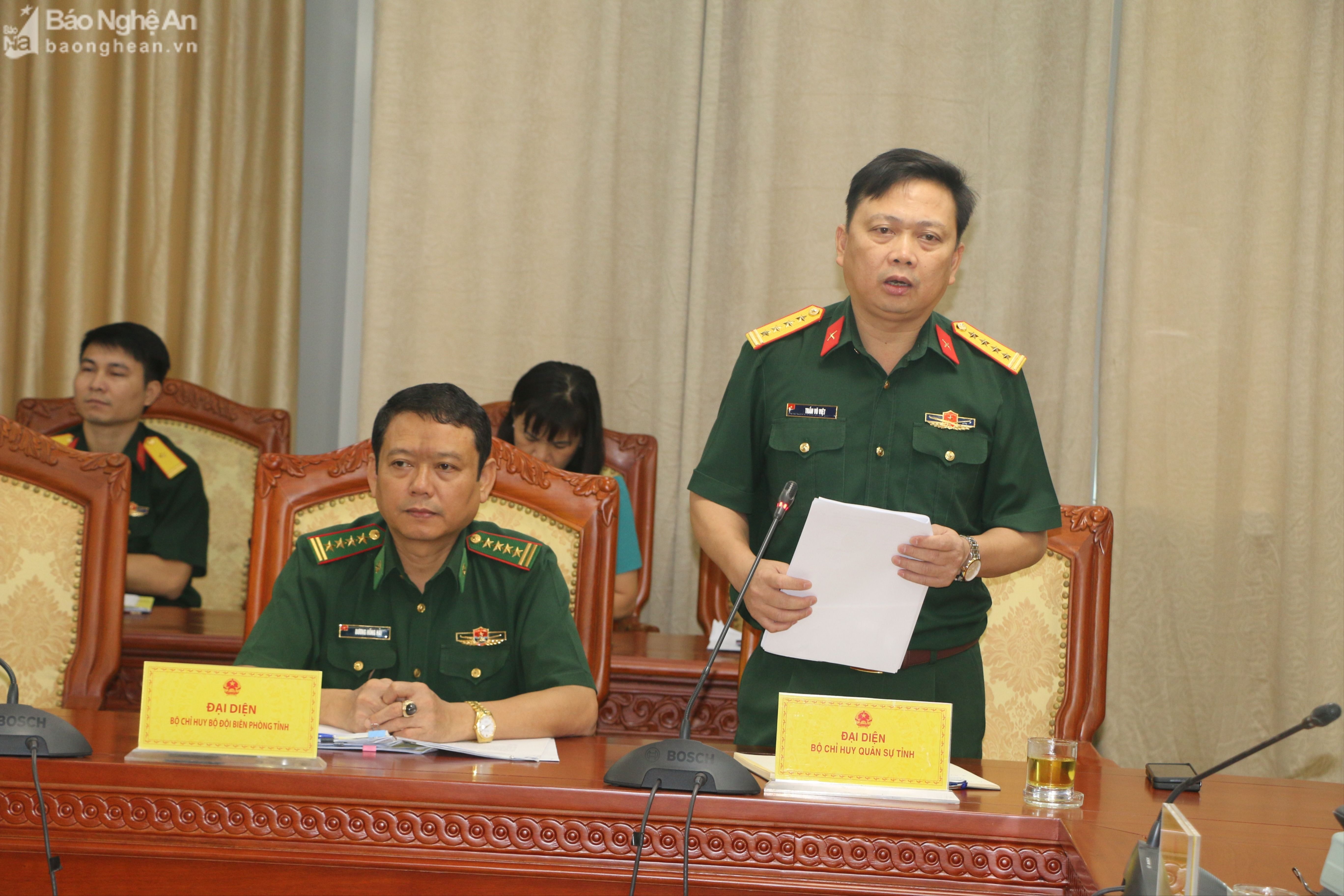
Delegate Que Thi Tram Ngoc - Deputy Head of the Ethnic Committee, Provincial People's Council stated: At Point a, Clause 2, Article 5, it is determined that: "National defense works include command works, combat works, combat support works on the ground, underground; evacuation works of central ministries and branches; military airports, military ports; natural caves renovated or planned for construction for combat and defense tasks; ancient citadels, ancient fortresses; tunnels, trenches, and bunkers left by history", proposedIt is recommended to include the types of works on water, underwater, and in the air to ensure consistency in the draft and at the same time be consistent with current trends.
Speaking at the conference, comrade Thai Thi An Chung - Member of the Provincial Party Committee, Deputy Head of the Provincial National Assembly Delegation acknowledged and highly appreciated the delegates' opinions contributing to the draft Laws; at the same time, fully absorbed the opinions to submit to the National Assembly for consideration and completion of the draft Laws to be soon approved at the next session.
-The Draft Law on Citizen Identification (amended) consists of 7 chapters and 45 articles regulating citizen identification, the National Population Database, the Identification Database; management and use of citizen identification cards; electronic identification accounts; rights, obligations and responsibilities of relevant agencies, organizations and individuals. This Draft Law stipulates that the subjects of application are Vietnamese citizens; people of Vietnamese origin who are stateless people living in Vietnam (abbreviated as people of Vietnamese origin); relevant agencies, organizations and individuals.
-The Law on Management and Protection of National Defense Works and Military Zones consists of 6 chapters and 34 articles regulating the management and protection of national defense works and military zones; rights, obligations, responsibilities; regimes and policies for agencies, units, organizations, households and individuals in the management and protection of national defense works and military zones.
-The Law on Forces Participating in Protecting Security and Order at the Grassroots Level consists of 5 chapters and 34 articles regulating the position, functions, tasks, principles of organization, operation, working relations, force building, ensuring operating conditions and responsibilities of agencies and organizations towards forces participating in protecting security and order at the grassroots level...

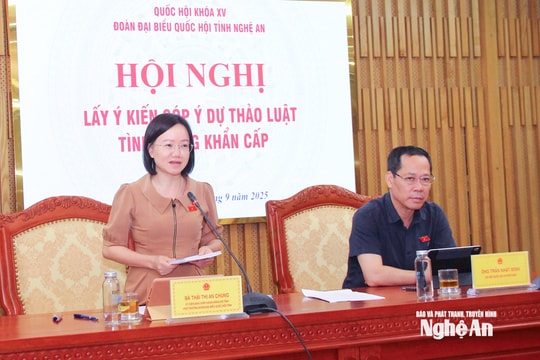
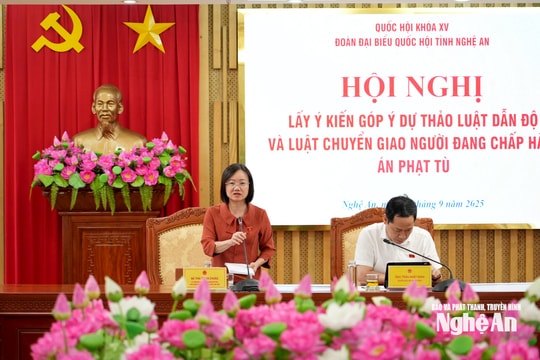
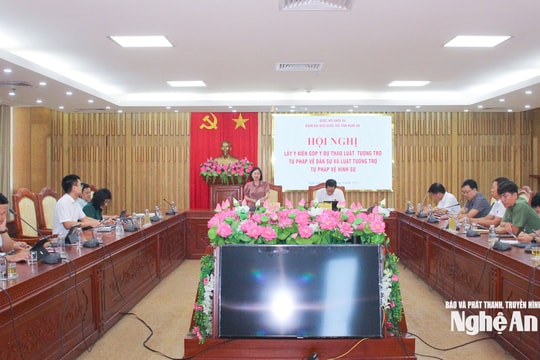
.jpg)
